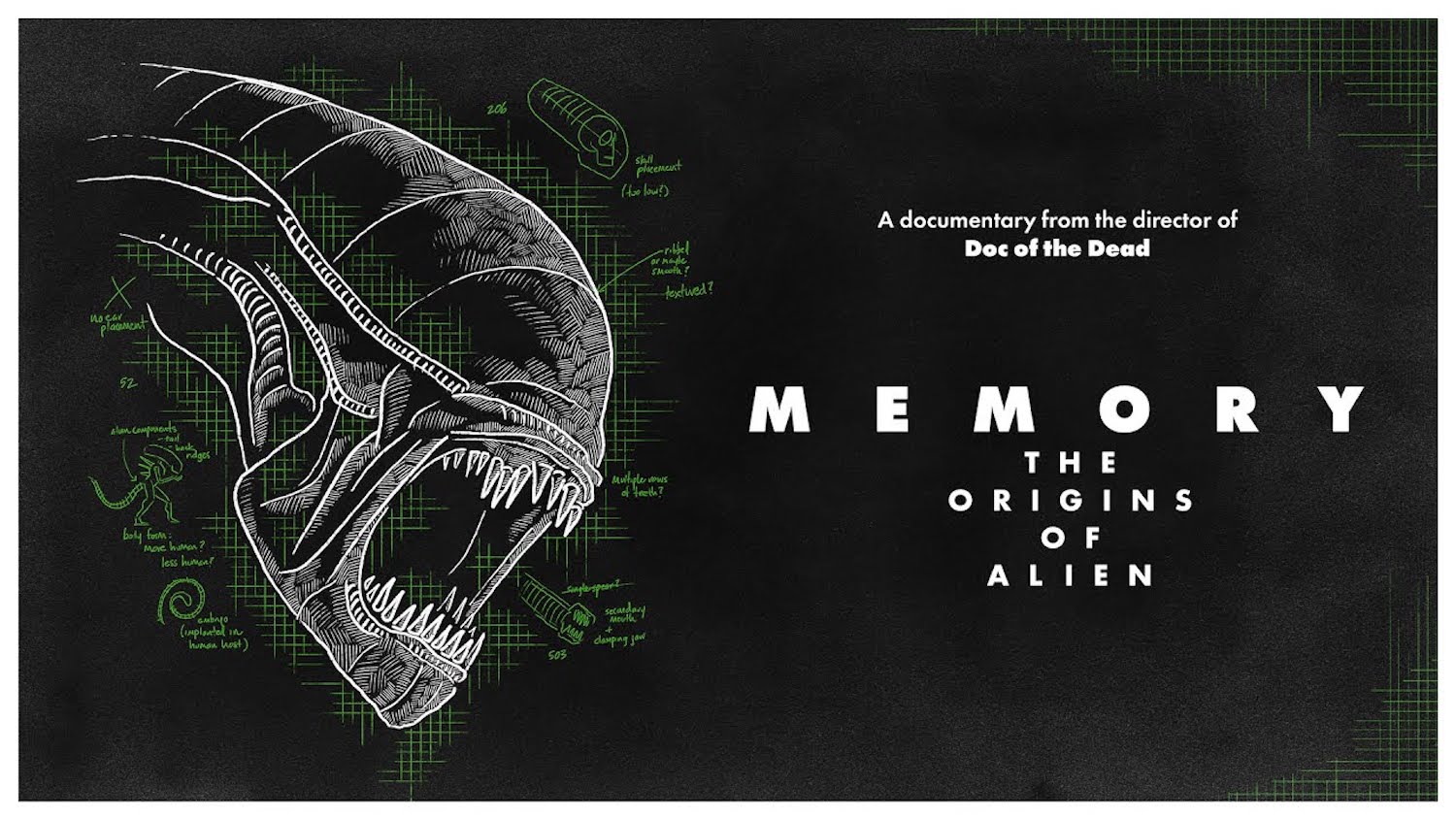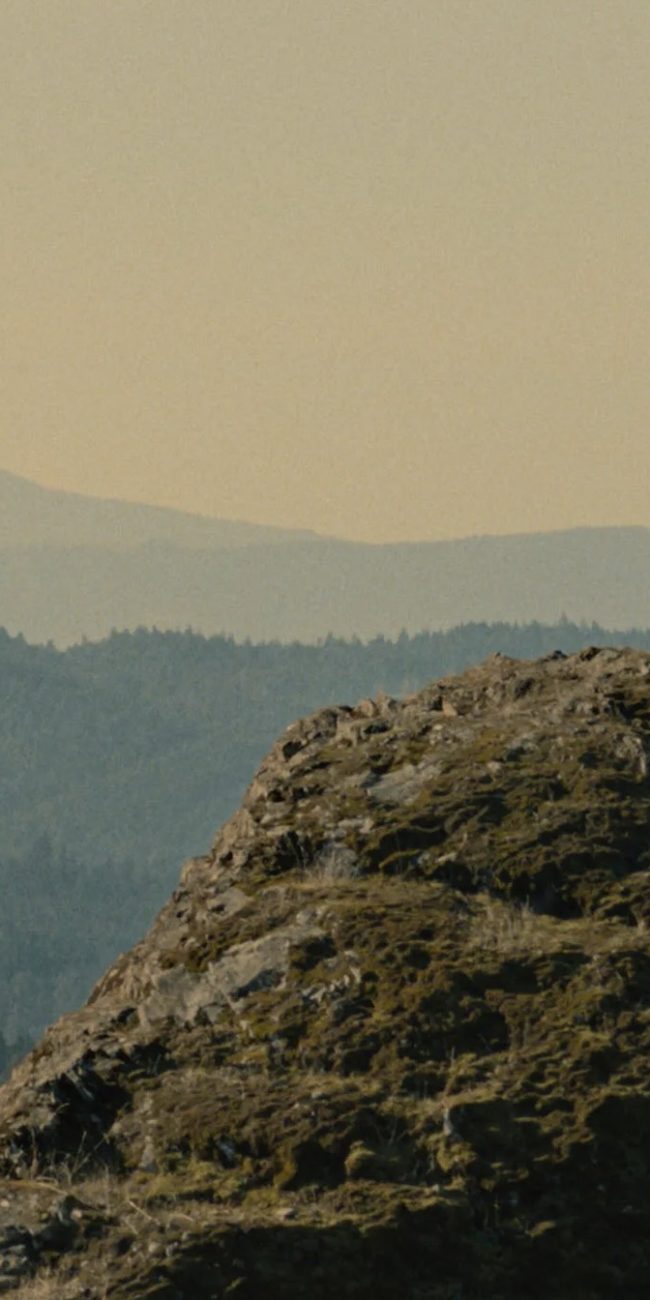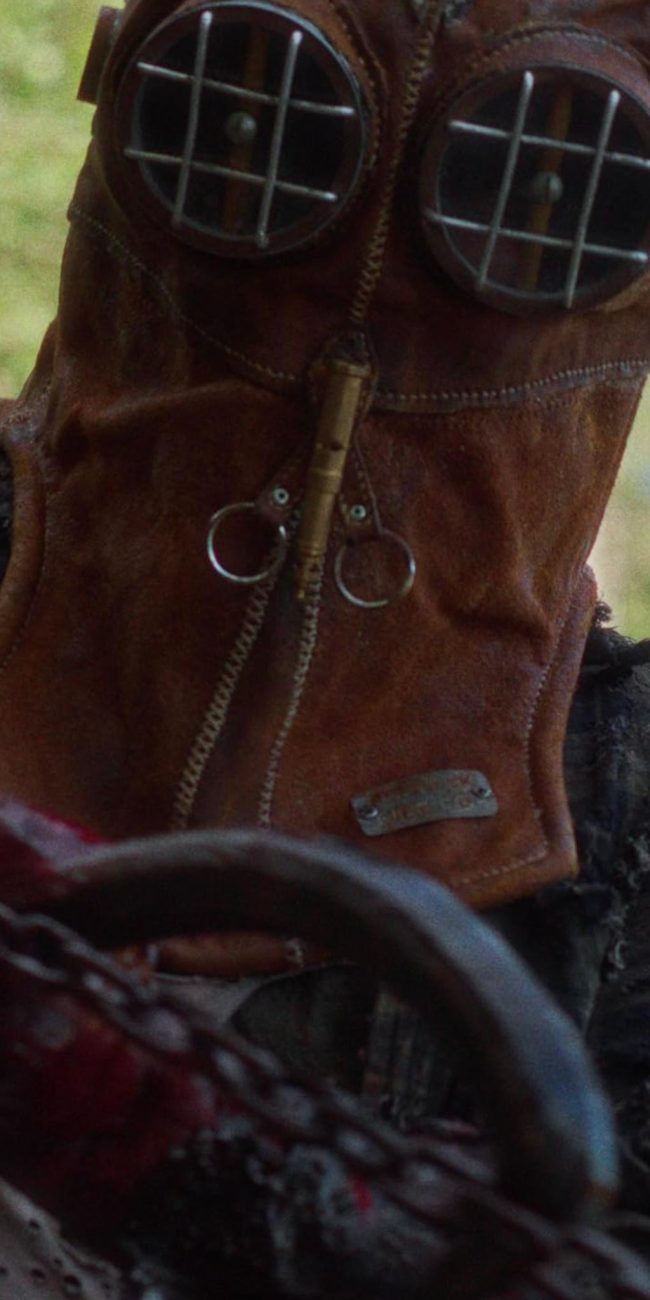MEMORY: THE ORIGINS OF ALIEN

(The 2019 Sundance Film Festival ran January 24-February 3 in Park City Utah. Hammer to Nail guarantees more reviews from the fest than any other website around. That alone is worth $1.00 per month to help keep us going!)
Ridley Scott’s mesmerizing 1979 sci-fi/horror blend Alien remains, to this day, a significant cultural and artistic touchstone, its visceral thrills hardly lessened by the passage of time. Indeed, the memory of my first exposure continues to color all subsequent viewings, the frisson of that initial fright, mixed with disgust, over the monster bursting from actor John Hurt’s chest a testament to its raw, elemental power. Perhaps it’s more than appropriate, then, that director Alexandre O. Philippe (78/52: Hitchcock’s Shower Scene) has entitled his film about the complicated making of Alien “Memory,” though it was certainly not for my benefit, alone. That was actually the name of the original script, and is just one of the many interesting tidbits we learn, mixed in with impressive substantive interpretations of the movie’s meaning, in Philippe’s comprehensive profile of the behind-the-scenes making of Scott’s early masterpiece.
Given the brash confidence of the mise-en-scène, it’s hard to believe that Alien was just Scott’s second feature, though he had numerous commercials under his belt by the time his movie career began, at the age of 40, with the 1977 The Duellists. Still, as stunning as Scott’s talents may be, he is just one of the authors of the film, and though he eventually factors into the story, he is by no means its primary focus. That would be, instead, writer Dan O’Bannon. Following his disappointment over his treatment by John Carpenter on the set of the 1974 Dark Star (a kind of comedic Alien, which had long been gestating in O’Bannon’s brain), O’Bannon was determined to make sure he exerted greater control over his next project. At one time virtually homeless, he nevertheless persevered with his idea – briefly called “Star Beast,” as well – until he landed not only the perfect director for it (after a flirtation with Walter Hill, of all people, who fortunately decided to make Southern Comfort, instead), but the ideal designer of the alien and its environment, Swiss artist H.R. Giger. The alchemy of this particular threesome led to cinematic gold.
But even that is only part of Philippe’s story. He is equally fascinated with the movie’s legacy, and brings to the screen a large cast of talking heads to discuss the philosophy, mythology and, yes, blood and guts of the work. My favorite among them may be Turner Classic Movie’s Ben Mankiewicz, who offers smart analysis with deadpan wit, but there’s also actress/writer/podcast host Clarke Wolfe; Belgian filmmaker Axelle Carolyn; Carmen Giger and Diane O’Bannon, the widows of the designer and writer, respectively; the great schlockmeister himself, Roger Corman (who offered to make Alien, though only if O’Bannon couldn’t raise the money that he needed, and thank the heavens he did); Alien’s art director, Roger Christian, and producer, Ivor Powell; and stars Veronica Cartwright and Tom Skerritt, as well as many others. There is no new footage of Ridley Scott (according to my post-screening talk with the director, he and Scott just couldn’t work out the schedule), though this apparent lack actually works to the movie’s aesthetic advantage, since it allows for Scott’s archival interviews to be presented as are Giger’s and O’Bannon’s in the same stylized, frame-within-a-frame way, creating an effective three-way commentary from the principle players. Overall, these interviews make for a fascinating discussion.
Which makes for a mostly riveting documentary, gorgeously shot (and presented in the same aspect ratio as Alien’s original wide-screen anamorphic format), and guilty only of presenting too much information. At one point, after we circled back to the opening staged bodies of writhing Furies in the Temple of Apollo in Delphi, Greece, I think my head exploded, unable to process yet another layer of meaning. Perhaps it’s not me typing this, in fact, but an extraterrestrial doppelgänger. But since we’re on the topic of explosions, let me reassure fans of Alien that Philippe and company spend a lot of time on the famous chest-burster scene, covering it from so many angles that, yes, my own chest may have exploded, as well. It’s a small price to pay for this exciting combination of entertainment and historical analysis, however, and I’ll take it.
– Christopher Llewellyn Reed (@ChrisReedFilm)
Like what you see here on Hammer to Nail? Why not pay just $1.00 per month via Patreon to help keep us going?











